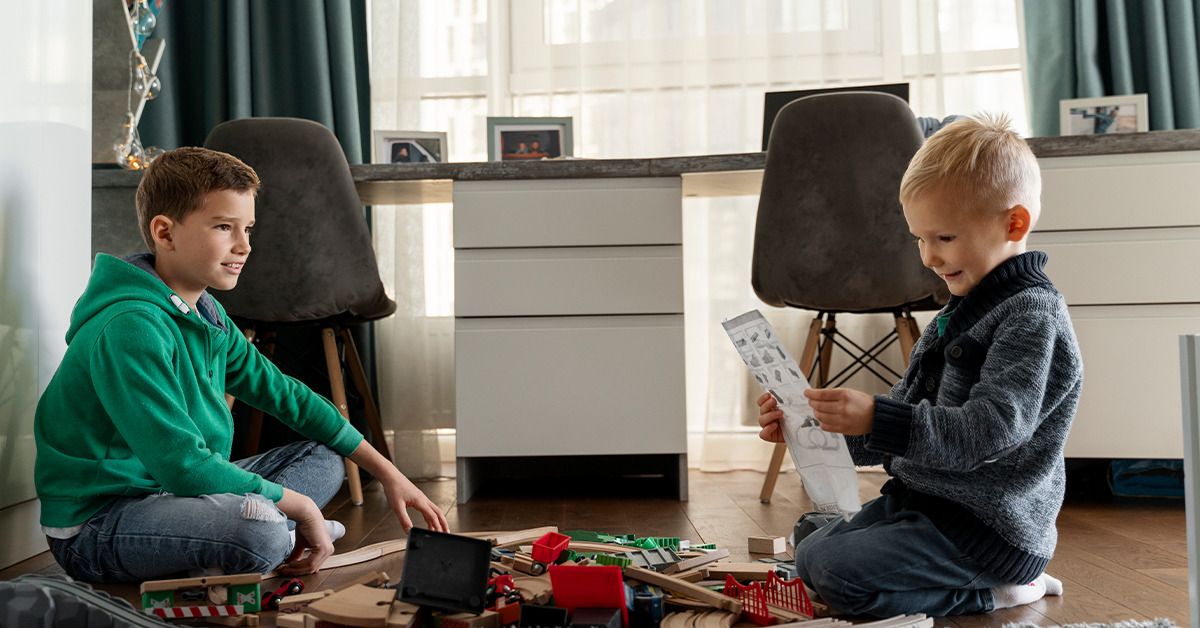Social skills play a crucial role in how successfully children function in society. Children acquire these skills as they develop. The people around them play the most important role in this process by supporting children and helping them reach their full potential. Below we list some ways you can do this.
1. Spending time with friends is the best school
Social contact with peers who are in the same or similar situation is the best way for children to acquire social skills. Even in early childhood, children learn by playing with friends what is allowed and what is not, i.e. what distinguishes a “good” friend from a “bad” friend. In mutual interaction, children encounter injustice, but also situations of defeat that must be accepted. These are very significant moments that later make it easier for children to work with people of different characters and help them to be resourceful, courageous and assertive in communicating with others.
Of course, this doesn't mean that you have to force the child to meet other children or take part in extracurricular activities if they don't want to for some reason. It is best to listen to the child and his needs and recognize the moments when he wants to withdraw. But also to experience those moments when you need contact with friends with similar interests.
2. Practice interpreting feelings with your children
Many misunderstandings in children arise from misinterpreting the emotions of others. So they may misunderstand their friends' nervous expressions, confusion or insults, which can later lead to problems in mutual interaction. How can we improve the very important skill of recognizing emotions? How else, how through the game?!
- Emotional Mime – Write some emotions on small pieces of paper and place them in a bowl. As in the classic pantomime game, each player takes turns taking a piece of paper and acting out the feelings written down using only facial expressions and gestures. To make the game more difficult, you can also draw the emotions you want to portray. After guessing the emotion, ask the child if he or she remembers a situation in which someone around them felt that way.
- Imitation – Have your child do the same thing as you, i.e. have him imitate your movements, focusing primarily on facial expressions. Smile, frown, and then have your child describe the feeling in as much detail as possible.
3. Joint attention exercises
There is no better teacher than conversation. A carefully conducted conversation sets in motion little minds that not only tickle their curiosity, but at the same time teach the little ones to listen carefully and participate appropriately in the conversation. Discuss a topic that is close to your child's heart, ask for their opinion, or point out things you have seen around you while walking together. The child should pay attention to the sounds and what they see and then describe their observations. Start the conversation by staying on the given topic for as long as possible. If the child often interrupts you, calmly interrupt him and remind him that now it is not his turn to speak, but to listen. In this way, the child learns to focus his attention on what others are talking about. He understands what active listening means and how to recognize and use body language as an important part of communication.
4. Provide your child with the support they need
On the way to adulthood, children repeatedly encounter numerous challenges that they master skillfully and thereby develop their skills. However, in situations where they need advice or support, it is important that children know that they can and can ask for help. In these situations, too, the ability to recognize and verbalize feelings (in this case your own) is of great importance. Asking for help is not a sign of weakness, but of self-awareness and responsibility. A child who is taught to make mistakes and to have the ability to ask for help will master two very important social skills. Namely, dealing with fear and dealing with failure. Failures are not seen as a sign of incompetence, but as a valuable experience that is part of life.
5. Finally, a little reminder: Children learn through role models
By observing their parents, children learn what is right and how they should behave. The way you speak to others, your nonverbal communication, your tone of voice, but also whether you politely thank the salesperson in the supermarket, all have a major impact on your child's social skills.
As mentioned above, children develop their social skills best when interacting with other children through various school and extracurricular activities. Educational programs such as BrainOBrain help children to develop self-confidence and communication skills, but also to reduce anxiety and make decisions more easily. You can easily enroll your child for a free trial lesson and enjoy the good development of his skills.





